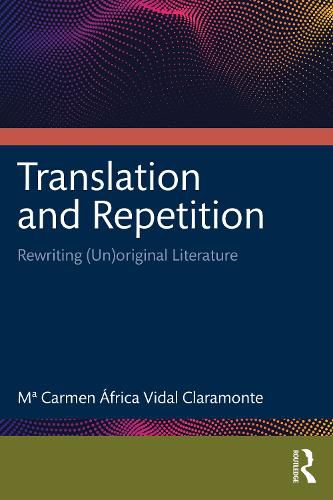Readings Newsletter
Become a Readings Member to make your shopping experience even easier.
Sign in or sign up for free!
You’re not far away from qualifying for FREE standard shipping within Australia
You’ve qualified for FREE standard shipping within Australia
The cart is loading…






Translation and Repetition: Rewriting (Un)original Literature offers a new and original perspective in translation studies by considering creative repetition from the perspective of the translator. This is done by analyzing so-called "unoriginal literature" and thus expanding the definition of translation.
In Western thought, repetition has long been regarded as something negative, as a kind of cliche, stereotype or automatism that is the opposite of creation. On the other hand, in the eyes of many contemporary philosophers from Wittgenstein and Derrida to Deleuze and Guattari, repetition is more about difference. It involves rewriting stories initially told in other contexts so that they acquire a different perspective. In this sense, repeating is often a political act. Repetition is a creative impulse for the making of what is new. Repetition as iteration is understood in this book as an action that recognizes the creative and critical potential of copying.
The author analyzes how our time understands originality and authorship differently from past eras, and how the new philosophical ways of approaching repetition imply a new way of understanding the concept of originality and authorship. Deconstruction of these notions also implies subverting the traditional ways of approaching translation. This is vital reading for all courses on literary translation, comparative literature, and literature in translation within translation studies and literature.
$9.00 standard shipping within Australia
FREE standard shipping within Australia for orders over $100.00
Express & International shipping calculated at checkout
Translation and Repetition: Rewriting (Un)original Literature offers a new and original perspective in translation studies by considering creative repetition from the perspective of the translator. This is done by analyzing so-called "unoriginal literature" and thus expanding the definition of translation.
In Western thought, repetition has long been regarded as something negative, as a kind of cliche, stereotype or automatism that is the opposite of creation. On the other hand, in the eyes of many contemporary philosophers from Wittgenstein and Derrida to Deleuze and Guattari, repetition is more about difference. It involves rewriting stories initially told in other contexts so that they acquire a different perspective. In this sense, repeating is often a political act. Repetition is a creative impulse for the making of what is new. Repetition as iteration is understood in this book as an action that recognizes the creative and critical potential of copying.
The author analyzes how our time understands originality and authorship differently from past eras, and how the new philosophical ways of approaching repetition imply a new way of understanding the concept of originality and authorship. Deconstruction of these notions also implies subverting the traditional ways of approaching translation. This is vital reading for all courses on literary translation, comparative literature, and literature in translation within translation studies and literature.